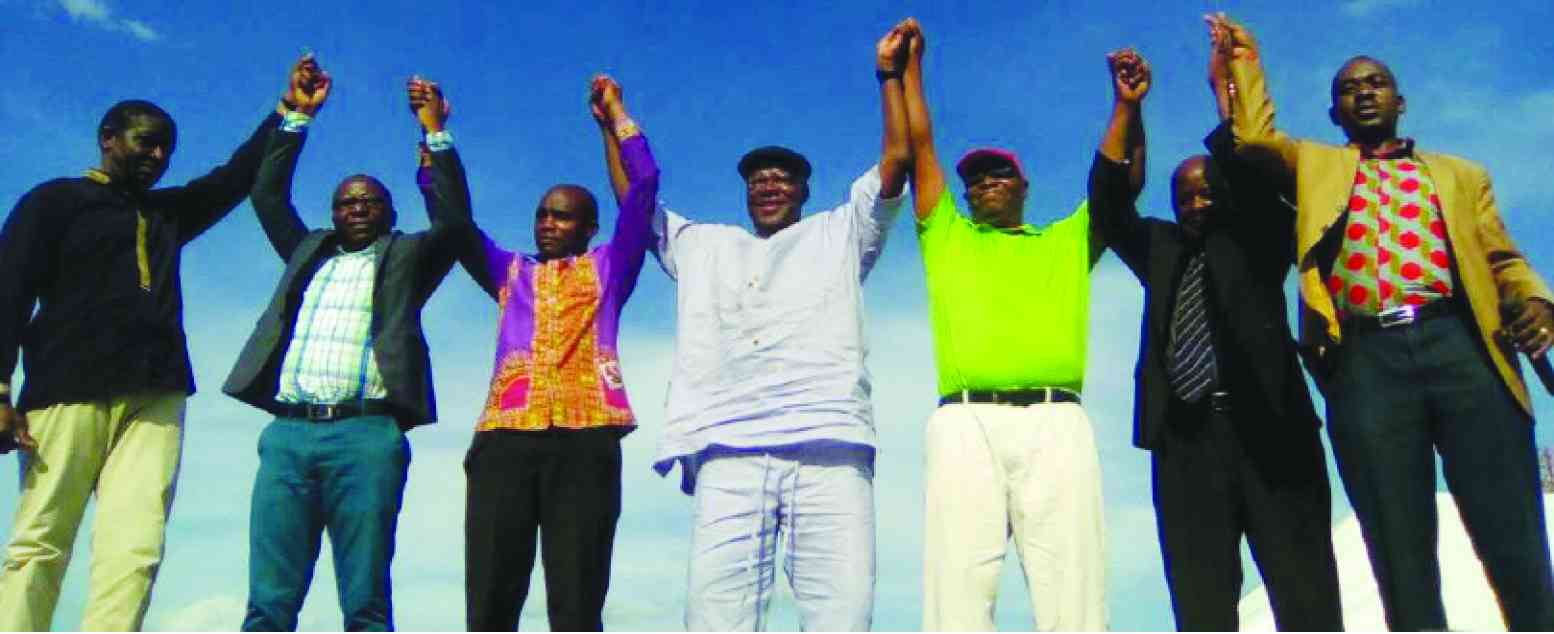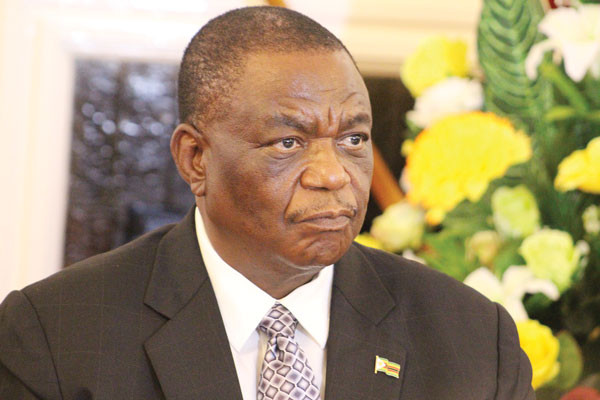
With the collapse of the opposition, Zimbabwe is sliding into a de facto one-party state due to the “death of democracy” while the current economic crisis is pushing the majority of Zimbabweans into abject poverty. There is now a multitude of political orphans who feel they have no political home on either side of politics. These political orphans want change and they want a voice. In this opinion piece, Simon Mutonhori, a founding member of Zunde, proposes a way forward towards giving them a voice and bringing effective and lasting change to Zimbabwe.
We are Zunde and “zunde” is what we do. “Zunde” is a Shona word that means coming together and combining our efforts to tackle a common problem. Zunde (Zimbabweans UNited for DEmocracy) is a movement calling on all Zimbabweans worldwide, regardless of race, religion, social status or political affiliation, to combine their efforts to free Zimbabwe from a dictatorship that has vowed to stay in power at any cost.
Zunde seeks to transform our politics once and for all. We seek to establish the politics of values rooted in the traditions of Hunhu/Ubuntu, and we reject the politics of personalities.
We seek to establish a peaceful, free, democratic, and prosperous Zimbabwe based on good governance, equality of citizens, and the rule of law.
We are urging Zimbabwe’s political orphans to come together in a broad opposition coalition and combine their efforts to tackle the situation on Zimbabwe today.
The politics of personalities
Opposition politics in Zimbabwe has long been bedevilled by personalities. For a while, Morgan Tsvangirai and MDC gave the people hope but ultimately failed because Tsvangirai maintained tight personal control of MDC to the end, failed to develop a collaborative leadership, and neglected to put a succession plan in place. MDC died with Morgan Tsvangirai.
The collapse of CCC with the departure of Nelson Chamisa and the recent statement by Lovemore Chinoputsa are reprises of the same tragedy.
- Mavhunga puts DeMbare into Chibuku quarterfinals
- Bulls to charge into Zimbabwe gold stocks
- Ndiraya concerned as goals dry up
- Letters: How solar power is transforming African farms
Keep Reading
There have been post-independence breakaways from both Zanu PF and the opposition right from the start, each one led by a personality whose star was in the ascendant. Call to mind Edgar Tekere, Margaret Dongo, Dumiso Dabengwa, Dzikamai Mavhaire, Simba Makoni, and the G40 cabal and, on the other side, Welshman Ncube, Tendai Biti, Elton Mangoma, Job Sikhala, Arthur Mutambara, Thokozani Khupe, Arthur Mwonzora. None of the breakaway parties from Zanu PF and MDC could maintain momentum but fizzled out in time.
Eventually, the proponents of breakaway factions either rejoined the mother party or simply gave up and retired from politics.
Although Zanu PF was long dominated by Robert Mugabe, it nonetheless survives as an institution which does not revolve around individuals (otherwise it would have died with Chitepo in 1975, with Tongogara in 1979 or with Mugabe in 2019). The opposition as epitomised by the MDC and its various formations was founded on individuals. They have never been able to build an institution which lives beyond personalities.
The apparent reunification in the form of the MDC Alliance was never a genuine alliance but a capitulation by all involved who were then struggling for political relevance. This was evidenced by the gaping fissures that appeared soon after the formation of the renewed party with the same recycled membership.
The consequent demise of the MDC Alliance was an inevitable result of insincerity on the part of apparent allies who were each looking after their own interests. The subsequent formation of CCC followed the same pattern with the same result.
Zimbabwe's current political environment is enough to send even the most optimistic Zimbabwean into the depths of dark depression. Time has proved Zunde’s wisdom in enshrining its rejection of the politics of personalities as one of its founding principles. What is happening in CCC since Chamisa's departure is downright depressing.
The people cannnot progress the struggle because Chamisa is not there anymore. When struggles are hijacked by personalities, they are doomed to fail.
Cultism and culture of silence
The departure of the tight-lipped Chamisa speaks volumes about the culture of cultism in both the opposition and Zanu PF. In the same way, none of the expelled senior Zanu PF members have spilled the beans for the benefit of the public, e.g by now, we should have heard what happened to Itai Dzamara from G40 members.
There are prominent expelled Zanu PF members such as Margaret Dongo, Edgar Tekere, Joice Mujuru, Didymus Mutasa, Dzikamai Mayhaire, and Simba Makoni who are all conveniently quiet about their party’s transgressions in the past.
They have all remained silent about the fate of their colleagues like Herbert Chitepo, Josiah Tongogara, and Jason Moyo. In the same way Chamisa and his few remaining disciples remain tight-lipped about who exactly flushed them out of CCC (apart from the relatively insignificant, self-imposed, “interim” secretary-general Sengezo Tshabangu).
It would appear that there is either a secret covenant between these erstwhile comrades not to expose each other or they have skeletons well hidden in their respective cupboards.
Clearly, those who live in glasshouses are fully aware of the consequences of randomly throwing stones.
Five groups of political orphans
Across the political divide, there are now a multitude of political orphans looking for a political home from which they can air their views without fear of retribution. They are fearful of being labelled traitors and scorned as sell-outs by their current political parties.
Originating from the opposition and Zanu PF alike, these political orphans are not at liberty to express their political views due to the cult mentality in their respective parties.
These orphans are those who are pretending to be loyal members and those already expelled from their parties. They are desperate to belong somewhere. A second group is the generality of bewildered onlookers, who are also yearning for a new and meaningful body to belong to.
Thirdly, there are the ordinary people who are being persecuted and being driven from the land they paid for through Zanu PF’s corrupt structures many years ago. A fourth group is the diaspora community which has been sidelined for years and is eager to be involved.
Fifthly are the ordinary majority who are doing it tough, particularly urban dwellers.
The political landscape is ripe for a seismic shift, only the vehicle is missing. Passengers from all walks of life and backgrounds are eagerly waiting at the bus stop.
Lack of Diaspora policy
There is enormous potential for change within Zimbabwe emanating from or assisted by Zimbabweans outside the country. However, people on both sides of politics apparently view the diaspora as a threat to their individual positions in their respective parties.
Hence neither side has any meaningful engagement with the diaspora community. Despite the huge potential for contributions from the diaspora, intellectually and financially, both political parties view diaspora with suspicion, if not outright contempt. Zanu PF refuses to engage with the diaspora and MDC and its variants have never pushed for diasporans to vote—it was never a priority for them.
Where to from here? What now?
People in the Zimbabwean diaspora are well established and have access to government leaders in their countries of domicile. It is time to engage the diaspora to champion and lead a broad opposition coalition forum.
The diaspora has the resources and willingness to drive the Zimbabwe cause without being restrained by Zanu PF and, for this reason, the headquarters of this opposition should be based outside Zimbabwe.
Zunde calls for an all-inclusive dare/indaba to be held outside Zimbabwe, preferably in Zambia, Botswana or South Africa for convenience.
Zunde will facilitate the dare/indaba but will not own it. It will not be a ZUNDE project but will belong to the participants drawn from Zimbabwe and countries around the world.
We envisage the dare/indaba lasting for a full week to allow for many presentations, question and answer sessions, and discussion groups. Speakers will be registered through an event management group. A few well known and respected people will be invited as keynote speakers to set the tone for the conference and raise thematic topics to be discussed in breakaway groups and presented back to the forum.
Thematic groups will be decided from within depending on individual interests. Possible themes could be: how to engage the diaspora, how to engage the international community, how to establish an effective opposition, the use of elections as a vehicle for change, how to engage rural people, and other ways to achieve change. From those deliberations a clear picture of pragmatic strategies will emerge in the plenary session through consensus or voting if necessary.
A Charter will be drawn up listing agreed priorities with strategies to implement each of those priorities. From there, the conference will decide on a small secretariat for administration and implementation of the agreed plan of action. The secretariat leader will be elected, and a date set for the dare/indaba to reconvene.
Pamwe chete tinogona kuzviita. Ngokubambisana sizophumelela. Together we can do it.
- Mutonhori is a founding member of ZUNDE contactable on [email protected].







